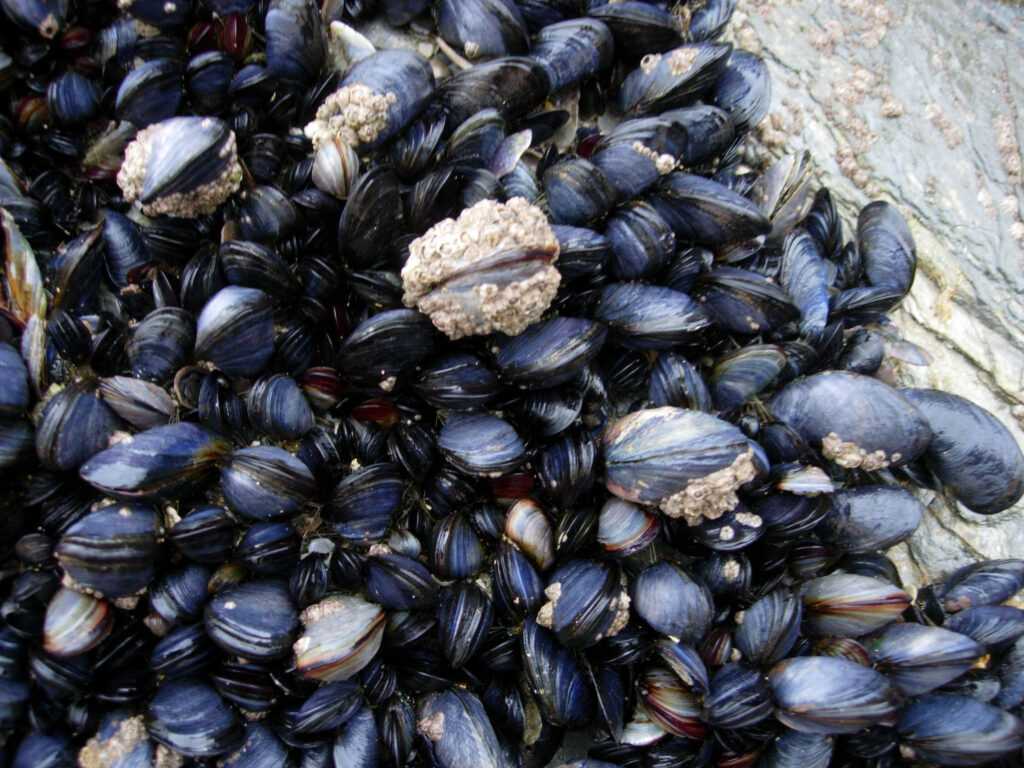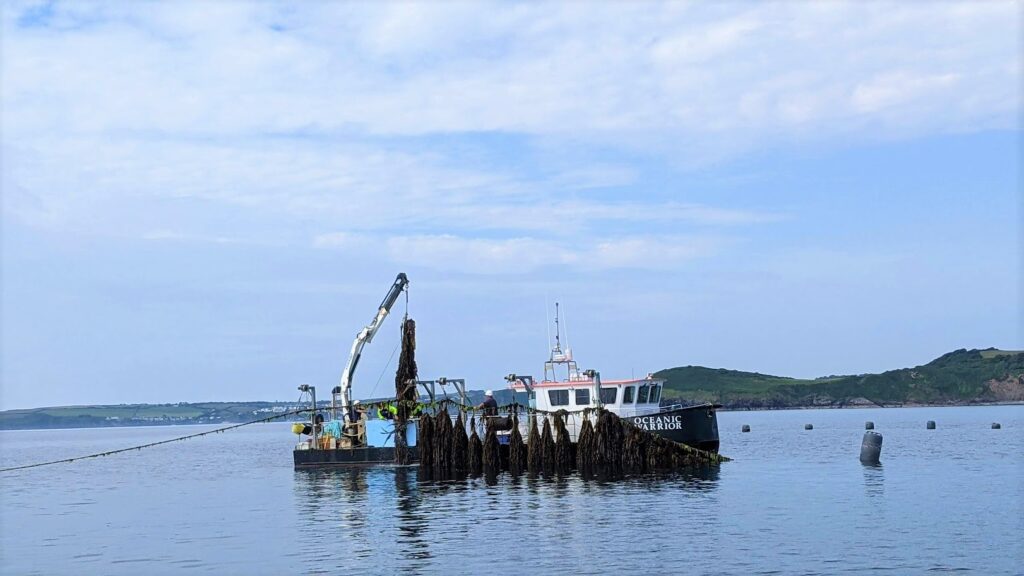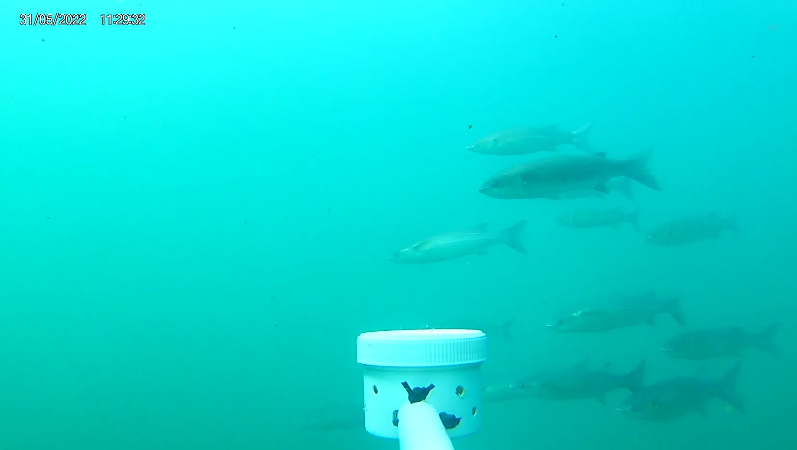
Shellfish and seaweed farming offer potentially sustainable food sources and are increasingly recognised for their additional environmental benefits, but research into their value for fish populations is currently lacking.
Researchers from the Marine Biological Association (MBA) and the University of Exeter teamed up to determine whether these aquaculture sites help or hinder fish abundance and diversity.
Results from camera and fishing surveys in UK locations suggest mussel and seaweed farms could create new feeding grounds for fish of commercial and ecological importance.

Surveys were carried out around two integrated blue mussel and kelp farms in Cornwall.
Baited remote underwater video (BRUV) units were used to record and compare fish presence in locations in and around the sites and fishing surveys were used to determine their feeding patterns.
At least 11 fish species were recorded across the surveys, with farmed mussels and kelps supporting significantly higher numbers and diversity of fish compared to areas outside these locations.

The new study identified several commercially and ecologically important fish species using the farmed areas, such as mackerel, pollack, and greater sand eels, with diet analysis revealing that farms may provide important new feeding grounds for these species.
Young (juvenile) fish were also found in abundance at both farms, suggesting the sites may provide important nursery and breeding grounds, although more investigations are needed to verify these findings.
Lead author Sophie Corrigan conducted the surveys as part of her PhD at the MBA and University of Exeter. She said: “Given the degradation of natural habitats around our coastlines, the decline of many important fish stocks, and the clear need for increased sustainable food systems, these results provide important evidence about how shellfish and seaweed farms could be used as nature-based solutions if appropriately managed. The increase in fish abundance within these farms will likely have spill-over benefits to other marine users including fisheries, which may help to facilitate the inclusion of sustainable aquaculture within marine planning.”

Looking ahead, researchers say there needs to be greater recognition from policymakers and governmental bodies on the potential environmental benefits of shellfish and seaweed farms. Greater understanding of these sites and the impact on ecosystems will help increase provisions for habitat protection and environmental stewardship at these sites.
The research was funded by the Worshipful Company of Fishmongers, the Centre for Environment, Fisheries and Aquaculture Science (Cefas), the MBA, Research Council UK (RCUK), the South West Partnership for Environmental and Economic Prosperity (SWEEP) and the University of Exeter.
Find out more and read the full paper: https://www.int-res.com/abstracts/aei/v16/p145-162/